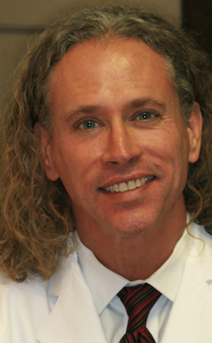 Charles Runels, MD
Charles Runels, MDEvery Man & Woman is Scuptor and Painter of the Body-Temple
| Testosteron & Breast Cancer |
Please help Me with the MythAnother one of my patients was told that testosterone is dangerous to the breast. I'm open to being taught, but I didn't want her to be ignorant about why I think testosterone protects the breast (and by the way, why I think that I've never-as far as I know--ever had a patient either get breast cancer or have a previous breast cancer revisit). I know that I cannot guarantee that a survivor of breast cancer will be cured forever, but here's a few reasons why I think one should at least consider using testosterone even if there has been a previous breast cancer (and why I think I have a much lower than average incidence in my practice): 1. Testosterone Not Associated with Increased Risk of Breast CancerMenopause Int. 2008 Sep;14(3):117-22. 2. Transexuals and female atheletes show ATROPHY of epithelial mammary tissue. Demetakikis, C Menopause, Vol 10 No. 4 2003 "A Physiologic Role for Testosterone in Limiting estrogen stimulation of the Breast."In other words, if you give high doses of testosterone to women (very high doses) they do not get an increased risk of breast cancer, they get shrinkage of the breast. 3. Testosterone kills breast cancer cells in rats and in monkeys.4. Women with less androgen receptors do not live as long (on average) as those with androgen receptors.In other words, breasts that are more sensitive to testosterone are associated with longer life. I could go on and on about how testosterone helps protect the heart, helps your brain work better, and helps you have better sex (more orgasms and more frequent orgasms), but for now--I'll just stop here and leave you with the idea that testosterone helps protect your breast from cancer. Peace & Health,
Charles Runels, MD (The Temple Repairman)
|